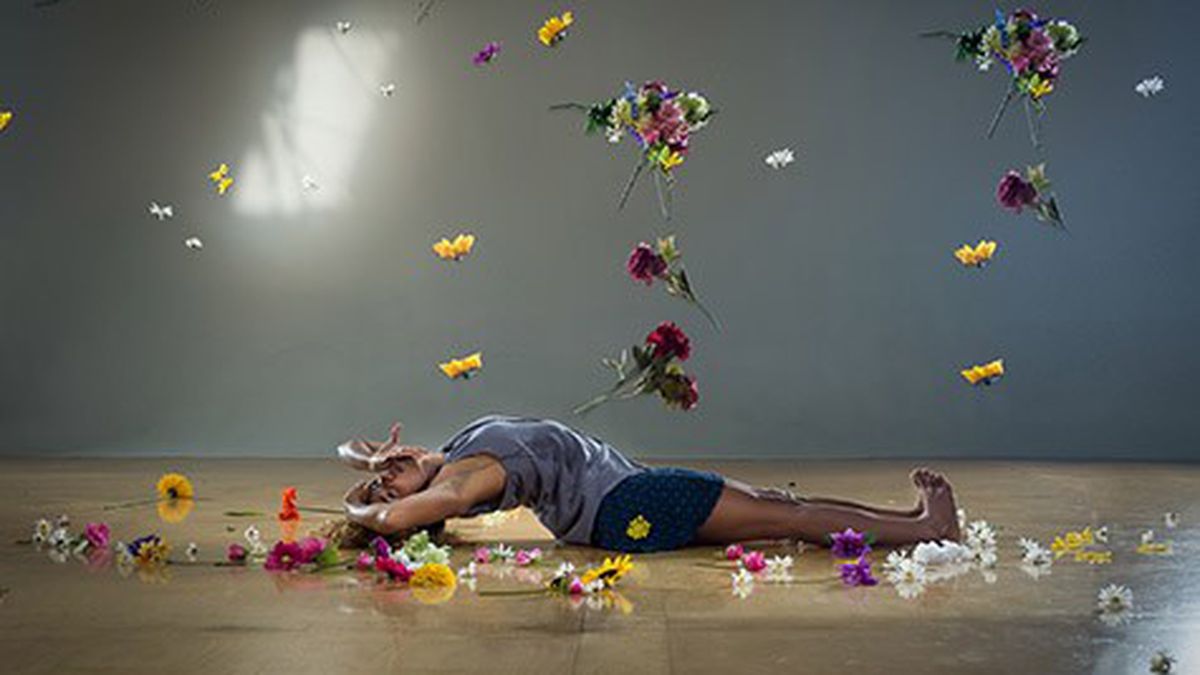Some emotions defy explanation; they simply must be felt. And that, according to Randee Paufve, is why we dance. “Dance and live performance are a way of bringing ourselves back to our bodies,” said the award-winning Berkeley choreographer in a recent interview, “and sharing an experience that we don’t have to put words to.”
Paufve channels powerful, and in many ways unresolved, emotions through her newest work, Strangers Become Flowers, a fifty-minute meditation on the global migrant crisis set to an adaptation of jazz drummer Scott Amendola’s album Fade to Orange. Developed over two years of improvisation and collaboration, the long-awaited piece premieres Saturday at the intimate, one-hundred-seat ODC Commons in San Francisco (351 Shotwell St.).
Inspired by her experiences traveling solo through Europe, Paufve set out to make a piece about human kindness and the blossoming of friendships between strangers — an early work-in-progress depicted a meet-cute that evolves into a budding crush. But urgent headline news about the ongoing refugee crisis made it impossible for her to exclude humanity’s darker side.
“The dancers and I had to really think about what it feels like to be thrust into a strange time and place,” Paufve explained. “I would never say that I know what the refugee experience is like. But this dance has become a poetic response to what is happening in our world.”
Strangers is an offering rather than a story, grounded but abstract and open to interpretation. Paufve cast six of the Bay Area’s most expressive and versatile contemporary dancers, and they move together in impressionistic choreography that conjures tension and trust, vulnerability and hope.
“There are moments of meeting and synchrony and harmony, and then it implodes through what feels like natural forces, a gust of wind, swimming through water,” said dancer Nadia Oka. “We are trying to find each other amidst a lot of chaos.”
The cast is a diverse group, from body type to ethnicity to training, including balletic Elizebeth Randall Rains, Aikidoist Oka, postmodernists Andrew Merrell and Rogelio Lopez, and contemporary dancers Juliana Monin and Mechelle Tunstall. Each brings a unique technical mastery that is a pleasure to watch. What they share is sensitive artistic intuition and a gift for revealing emotion through movement. “They’re very full human beings, and that matters to me,” Pauvfe said. “I want great dancers, but their humanity is just as important. Otherwise, it’s just mechanics.”
It was only after she cast Lopez, though, that she heard about the lived experience he brings to Strangers. Lopez emigrated from Mexico in 1989, at age thirteen, leaving difficult circumstances behind. “I am definitely attaching some of my own feelings to this character, and that feels very vulnerable,” he said.
In spite of the sorrows at its core, Paufve said, “I want Strangers to shed light, not darkness.” The dancers second her. “I’m not trying to compare myself to the refugees,” Lopez said. “But we feel for these people we don’t know — that is the kindness of strangers.”














